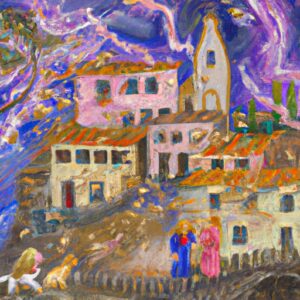Want to learn to talk about Italian words related to time?
And guess what, time is exactly what we are going to talk about today!
Let’s take a look at the meaning of ora and see what other words Italians use for minutes and seconds.
The Meaning of Ora
In Italian, ora has two different meanings. It is a feminine singular word (plural: ore) and is used both as a noun and as an adverb.
As a noun, it means “hour“. As an adverb, it means “now”, although sometimes it can be translated with “time“.
The difference can be easily guessed by looking at the rest of the sentence, as in the following examples.
Dove sei finito? Ti sto aspettando da quasi un’ora!
Where are you? I’ve been waiting for you for almost an hour!
Ora sta dormendo, gli dirò di richiamarti quando si sveglia.
He’s sleeping now; I’ll tell him to call you back when he wakes up.
As I wrote before. When used as an adverb, ora can also be translated with “time”, as in:
È ora di andare a casa.
It’s time to go home.
Che ora è?
What time is it?
Era ora!
It’s about time!
Finally, ora can be used to form two other Italian adverbs:
- allora, which can mean “so/then” or “at that time,” depending on the context;
- ormai, which means “by now“/”at this point“. It was formerly said ormai, but this form is starting to become obsolete.
Allora dove vuoi andare a mangiare stasera?
So, where do you want to eat tonight?
Allora io e Mario eravamo ancora amici.
At that time, Mario and I were still friends.
Jack, ormai è troppo tardi per scusarti…
Jack, it’s too late to apologize now…
Fixed expression with ora
The Italian language has many fixed expressions with the word “ora. The most common ones are:
- non vedo l’ora, which is the Italian translation of “I can’t wait!“. If you translate it literally, it means “I don’t see the hour“, meaning that you can’t see when something will happen, but you’re so excited about it that you keep waiting.
- fare le ore piccole, which means “to stay up until late“. The ore piccole (small hours) are the ones that come right after midnight. They’re called like that because Italians use the 24-hour clock (“1.00 pm” is simply “13.00”), and in a way, you can consider them the smallest on the list.
- ultim’ora, the Italian expression for “latest news” or “newsflash”.
Non vedo l’ora che arrivi di nuovo l’estate!
I can’t wait for summer to come again!
L’ultima volta che mi hai detto che non avremmo fatto le ore piccole, stavi incrociando le dita dietro la schiena!
Last time you told me we weren’t going to stay up until late, you were crossing your fingers behind your back!
Ultim’ora: anziano grida contro una nuvola! Aggiornamenti a seguire…
Latest news: old man yells at cloud! Updates to follow…
Other common expressions with ora are:
- d’ora in poi = from now on;
- ora o mai più = now or never;
- ora come ora = right now;
- fino ad ora = up until now. This expression has also been shortened into a single word: finora.
- ora come non mai = now more than ever.
Italian words for seconds and minutes + other words to measure time
E ora che sai cosa vuol dire “ora” in Italiano, è ora di vedere le altre parole che puoi usare per misurare il tempo.
Can you translate this sentence? It’s a perfect example of the double meaning of ora, and it is also the introduction to the next part of this post.
And now that you know what “ora” means in Italian, it’s time to see the other words you can use to measure time.”
The Italian words for “second” and “minute” are secondo and minuto (plural: secondi, minuti). Quite easy to remember, right? Italians also use the following units of time:
- quarto d’ora = 15 minutes, “quarter-hour”
- mezz’ora = 30 minutes, “half an hour”
- tre quarti d’ora = 45 minutes.
Una partita di calcio è composta da due tempi da tre quarti d’ora ciascuno.
A soccer match consists of two halves of 45 minutes each.
E ora ti lasciamo andare
Learning Italian is not only easy: it takes less time than you might think.
It took you just a couple of minutes to learn the meaning of ora, the Italian units of time, and 10 more commonly-used time expressions. Imagine what you could do in just a month if you read one of our posts each day./
Ora we’ll leave you back to your business. Don’t forget to come back to learn more words, and check our free online Italian test to measure your skills and make some practice. Alla prossima!
Learn more about Italian Time expressions.









